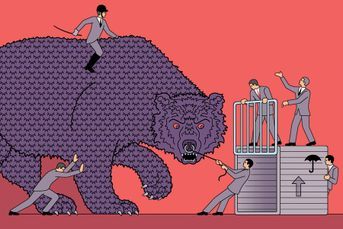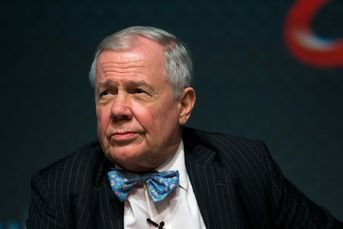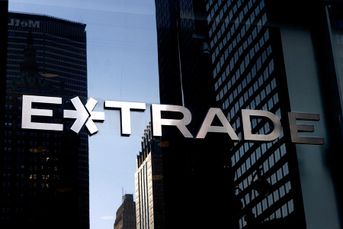Franklin Templeton’s Mark Mobius on state of globalism, China rising and best of emerging markets
Mark Mobius is the dean of emerging markets, with more than 40 years’ experience…
Mark Mobius is the dean of emerging markets, with more than 40 years’ experience investing in lesser developed countries. Mr. Mobius began his career at Vickers-da-Costa and joined Franlkin Templeton Investments in 1987 as president of Templeton Emerging Markets Fund (EMF). He’s currently executive chairman of Templeton Emerging Markets Group. Senior InvestmentNews columnist John Waggoner caught up with Mobius in Washington last week.
InvestmentNews: Free trade and globalism had been rising since the end of World War II. But the elections of President Donald J. Trump in the U.S. and Theresa May in Britain have marked a renewed interest in nationalism and tariffs. Has globalism peaked, and if so, will that harm emerging markets?
Mr. Mobius: If in fact globalism is receding – and I’m not sure that’s happening – then that would hurt emerging markets. The U.S. has been leading the opening of world trade. Regardless of what anyone says about the rise of China, the U.S. is still the world’s largest economy, and what happens here impacts everyone there. A trade war or border taxes would be a real problem globally. The good news is that Trump is pulling back from his more radical statements. I think that [Chinese premier] Xi Jinping will give Trump what he wants. The Chinese would rather keep the sleeping giant quiet.
There is a book called The 100-Year Marathon: China’s Secret Strategy to Replace America as the Global Superpower, by Michael Pillsbury. The race started in 1949 at the founding of modern China. The hawks in China have that date in mind. It’s not a military overtaking; it’s an economic one. And the reason Xi will give Trump what he wants is because he doesn’t want to rock the boat while China is still growing. China has been a very big beneficiary of globalization, especially since it joined the World Trade Organization, and Pillsbury argues that they have taken advantage of globalization. Although China is pushing in the South China Sea and with Taiwan, they won’t push too far until they have enough economic power to exert themselves. It’s a balancing act.
The beef for the Americans is that they say, “We’re following the rules.” And they tend to obey the rules because that’s the way the system is: You have to follow the rules. The Chinese don’t. You can’t get Yahoo or Google in China, whereas here you can get their internet portals. Alibaba raised billions on the New York Stock Exchange, and they have the worst corporate governance you can think of, with a few guys controlling the company.
The reason Trump backed down on the charges of currency manipulation is that Xi promised him something. Trump has suffered a defeat on the repeal of Obamacare, and he needs something now in his first 100 days in office.
InvestmentNews: Which emerging markets look the best to you now?
Mr. Mobius: We’ve been looking at Brazil since their economic downturn began. It still has more to go – no question about that. [Brazilian construction company] Odebrecht has projects all over Latin America and has caused problems all over Latin America. We were in Brasilia in February and went to the president’s office. They’re moving very fast on reforms. [Presient] Michel Temer is perfect for the job: He knows the politics and is going to be positive for Brazil.
India is growing at a tremendous pace. And you can’t overlook China. People are worried about its financial problems, but the reality is, this is a planned economy, not a free market economy.
InvestmentNews: Aren’t you worried about the real estate problems in China?
Mr. Mobius: The four major banks are controlled by the state. I don’t see a day when the government gives up complete control. The state companies will be merged into others – it’s not like the subprime problems here in the U.S. If you go to China, you see the ghost cities. The buildings are planned for people immigrating from the countryside. China wants the rate of urbanization to rise: It’s 50% to 60% of the Chinese population. In the U.S. it’s 80%. It’s not a major, major issue, although there will be individual problems.
InvestmentNews: What about the smaller emerging markets?
Mr. Mobius: We like South Korea, Taiwan and Vietnam. In Latin America, we like Argentina.
InvestmentNews: Argentina?
Mr. Mobius: People who buy the bonds keep falling for that. The new administration said to the hedge funds, “Let’s settle.” They did a deal, and as soon as it was settled, they raised $10 million. Some of the things [Argentina president Mauricio Macri has to do are painful, such as providing accurate inflation statistics.
Also, we haven’t given up on Mexico. The U.S. and Mexico are joined at the hip in investment and trade. The peso has rebounded. They can sit down with Trump, give greater access to their oil and investments. And while most people think oil is their biggest trade with the U.S., it’s actually machinery and equipment.
InvestmentNews: We understand that you’re backing off from some of your management duties at Templeton.
Mr. Mobius: I’m more busy than I have ever been: There are so many demands to make speeches. But the process has been going on for five years. We went from $100 million in assets to $26 billion. There’s no way I can handle that alone. The board of directors said, ‘Look, you have to start thinking about succession planning.” So I started turning management of the portfolios to different members of the team. It’s now formalized. It’s not a big, sudden change – it’s been going on for some time. It’s nice for me, because I can’t be blamed for performance. I’m doing more and more spokesman work, and doing presentations. But I still have analyst calls every week and sit down with analysts around the world.
InvestmentNews: You probably have more frequent flier miles than anyone on the planet. What’s your favorite place to visit?
Mr. Mobius: There’s no place I’ve been to that I didn’t like, or said, ‘I’ll never go back there again.” I’ve got an apartment in Singapore, and I lived in Hong Kong many years. But Rio de Janeiro would be on the top of my list of favorite places. But for a short vacation, Brazil would be the place. Carnival is the greatest show. After Rio, Cape Town. It’s so beautiful.
Learn more about reprints and licensing for this article.








